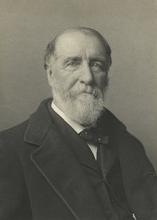Churchman historian patristics scholar and ecumenist par excellence Sir Henry Chadwick epitomizes the careful graceful and eminently concerned English scholar-theologian. Born 23 June 1920 into an accomplished family (his brother Owen being as accomplished in modern Church history as Henry is in that of the early Church though it is one of his sisters he calls ‘the brightest of us all’) Chadwick was educated at Eton and Magdalene College Cambridge where he received a degree in music. He took his D.D. at Christ Church Oxford. Chadwick served as Canon of Christ Church and Regius Professor of Divinity at Oxford from 1959 to 1969 during which time he gave two series of Gifford Lectures at the University of St. Andrews ‘Authority in the Early Church’ and ‘Authority in Christian Theology’. Despite the obvious relevance and importance of such an issue his unavoidable involvement in the politics of academics kept them from being published in full form. From 1969 to 1979 Chadwick served as Dean of Christ Church Oxford. Moving to Cambridge in 1979 he took up the position of Regius Professor of Divinity which he held until 1983. He was Master of Peterhouse Cambridge from 1987 to 1993 before retiring.
Chadwick began his academic career with an article on Origen followed only a few years later in 1953 by a new translation of Origen’s Contra Celsum. He has written over 125 books articles and the like. A number of his books including ones on greater (Boethius and Augustine) and more marginal theological figures (Priscillian of Avila), periods of history (early Church) and translations (Contra Celsum) are recognised classics in the field. He served as editor for the Journal of Theological Studies for over three decades (1954–1985) and as general editor for a number of series on Church history early Christian texts and New Testament commentaries. No less significant though is Chadwick’s ecumenical work. He worked on the first two Anglican-Roman Catholic International Commissions and also on the Anglican-Orthodox Commission calling ecumenism ‘a good cause to die in’. Such a brief phrase indicates both Chadwick’s unswerving commitment to Christian unity and his clear-eyed recognition that the effort of ecumenism calls not so much for compromise as for the suffering of the cross on the part of all Christians. He is known in ecumenical circles for his humour and his cool yet sympathetic setting of theological controversy in context returning to look for its relevance for ecumenical consensus today. Finally there is what Chadwick himself describes as ‘a lifelong passion for music in general and Church music in particular’. In addition to his undergraduate degree in music he has written about the role music played in Boethius’s thought as well as a pamphlet on the place of music in the Church.
In 1960 Chadwick was named Fellow of the British Academy (FBA) and in 1989 he became a Knight of the British Empire (KBE). His contribution to academy and Church has been such that he was presented with two Festschriften to honour his work in Church history and ecumenism. Chadwick has received honorary degrees from the Universities of Glasgow Uppsala Yale Leeds Manchester Surrey Chicago Harvard Jena and the Augustinian University of Rome. He died 17 June 2008 in Oxford.



